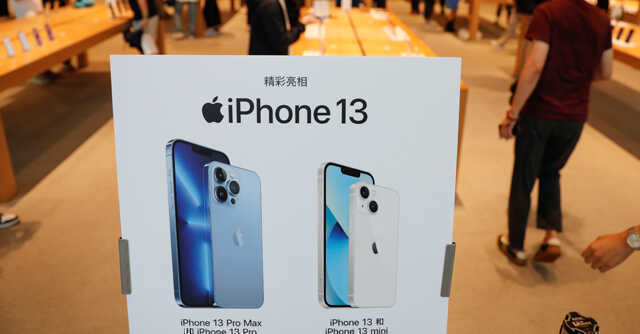
Chip shortage may not 'fundamentally alter' Apple supply chain: Cook


Apple does not expect any major change in the way its supply chain operates, chief executive Tim Cook said. Talking at the company’s latest earnings call, Cook said that Apple’s supply chain remains fast moving, leaving very little time between the manufacturing of a semiconductor chip, its packaging and its eventual use in a fully produced device leaving the factory.
“Our largest issue by far has been the chip shortage. That is industry-wide and on these legacy nodes. Our supply chain actually does very well considering the shortages, because it's a fast-moving one and the cycle times are very short. There's very little distance between a chip being fabricated and packaged and a product going out of the factory. So, no, I don't see that it makes a fundamental change in the supply chain,” Cook said in response to a question by Kathryn Huberty, managing director at Morgan Stanley.
Cook’s statement comes at a time when multiple companies in the semiconductor business have been looking at ways to diversify their manufacturing plans, with the US, Europe and India pushing to bring semiconductor manufacturing under their ambit. The semiconductor diversification push comes on the back of a prolonged, worldwide chip shortage, leaving companies in various countries being struck by component supply shortages.

Globally, the Taiwan Semiconductor Manufacturing Company (TSMC) controls nearly 53 percent of the chip market, according to industry data from Statista. On this note, Intel and Samsung have announced plans to build new semiconductor plants in USA, while the Indian government has rolled out a Rs 76,000 crore plan to incentivise chipset assembly, packaging and manufacturing to attract chipmakers to the country.
Cook’s statement, on this note, suggests that Apple remains satisfied with its supply chain — at least for now, despite the global shortage of chip supplies.
Apple reported record quarterly revenues of $123.9 billion for the October-December quarter of 2021, up by 11 percent year on year. While Cook did not break down the figures for India during Apple’s earnings call, he stated that both developed and emerging markets saw revenue growth for the quarter for all of its product segments, apart from iPad.

The quarter reportedly saw strong demand for iPhones in India as well. According to data from market research firm CMR, Apple shipped 2.2 million iPhones in the country between October and December, marking a 48 percent rise in shipment numbers year on year. The latter is being attributed to a strong product launch period of the iPhone 13 series.
Market research firm Counterpoint Research further said that Apple saw record shipments for India through 2021, with the company surpassing the 6 million figure for iPhones in the country through the previous year.
Cook also added Apple sees “a lot of potential” in the growing metaverse space, adding that it is “investing accordingly.” He further revealed that the Apple App Store has over 14,000 apps offering augmented reality experiences by using Apple’s ARkit augmented reality framework.

